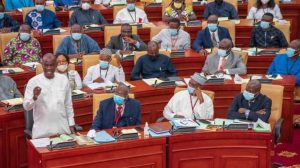
Gender and social inclusion: Ghana is a country with significant gender and social disparities. Researchers are studying the factors that contribute to these disparities and developing strategies for promoting gender and social inclusion. For example, researchers are studying the role of women in agriculture and developing strategies to increase their participation in the sector.
Education research: Education is a key factor in promoting social and economic development in Ghana. Researchers are studying ways to improve the quality and accessibility of education in the country. For example, researchers are studying the effectiveness of different teaching methods and developing strategies to improve access to education for marginalized groups such as girls and children with disabilities.
Migration research: Ghana is a country with significant migration patterns, both within the country and internationally. Researchers are studying the impact of migration on communities, families, and individuals, as well as developing strategies to promote safe and orderly migration. For example, researchers are studying the impact of remittances on household income and developing strategies to support migrant communities.
Governance and democracy: Ghana is often considered a model for democracy in Africa, but there are still challenges to be addressed. Researchers are studying ways to strengthen governance and promote democratic processes in the country. For example, researchers are studying the impact of decentralization on local governance and developing strategies to promote greater citizen participation in governance.
Cultural heritage and tourism: Ghana has a rich cultural heritage, but there is still limited research on the subject. Researchers are studying ways to promote and preserve the country’s cultural heritage while also promoting tourism. For example, researchers are studying the impact of cultural festivals on local economies and developing strategies to promote sustainable cultural tourism.